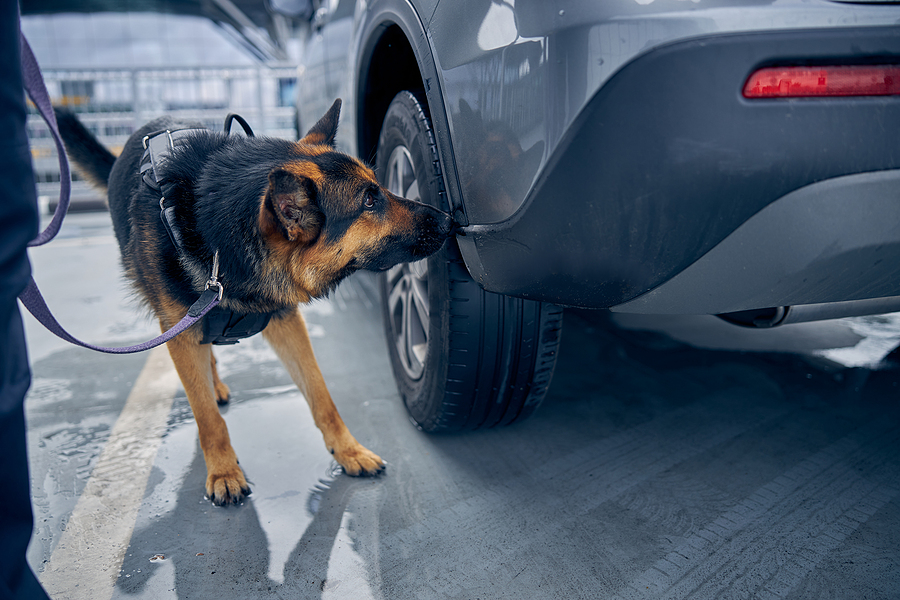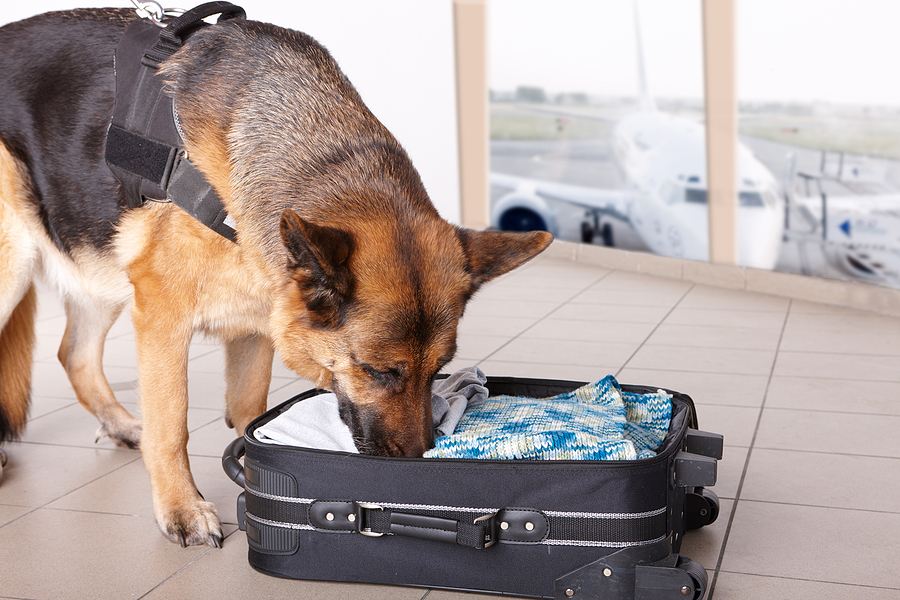Scent detection training for dogs is a specialized field that harnesses a dog’s extraordinary sense of smell to identify specific scents. This type of training is crucial for various applications, including law enforcement, search and rescue, and bed bug infestation to name a few. By understanding the training process, dog owners can better appreciate the skills and dedication required to train a scent-detection dog.
Understanding Scent Detection Training
Scent detection training for dogs involves teaching them to identify and alert their handlers to specific scents. The training process builds on a dog’s natural ability to distinguish between different smells and uses positive reinforcement to encourage the desired behavior.
The Basics of Scent Detection Training
Selecting the Right Dog for Scent Detection
Not all dogs are suited for scent detection work. Ideal candidates are typically highly motivated, energetic, and possess a strong work ethic. Breeds commonly used for scent detection include German Shepherds, Belgian Malinois, Labrador Retrievers, and Beagles due to their keen noses and trainable temperaments.
Early Training and Socialization
Early training is an essential component of scent detection training for dogs. Socializing puppies with various environments, people, and other animals helps them become well-rounded adults. Exposing them to different stimuli early on reduces fear and anxiety, making them more effective in their future roles.
Training Techniques and Methods
Introducing the Scent
The first step in scent detection training is introducing the target scent. Trainers use scent samples and imprint these scents on the dog. This process involves exposing the dog to the scent and rewarding them when they show interest, gradually associating the scent with a positive outcome.
Building Search Patterns
Once the dog recognizes the target scent, the next step is teaching them to search systematically. Trainers develop search patterns to ensure thorough and efficient searches. Encouraging and rewarding correct behavior helps the dog learn to follow these patterns consistently.
Positive Reinforcement and Rewards
Positive reinforcement is crucial in scent detection training. Rewards such as treats, toys, and praise motivate the dog to perform the desired behavior. Consistent positive reinforcement helps solidify the learned behaviors and keeps the dog engaged and motivated.

Advanced Scent Detection Training for Dogs
As the dog progresses, the training complexity increases. This involves training in various environments and conditions to ensure the dog can perform reliably in different scenarios. Advanced training prepares the dog for real-world applications, where they might encounter distractions and challenging situations.
Scent Detection Applications
Law Enforcement and Security
In law enforcement, scent detection dogs play a vital role in detecting narcotics and explosives. Their ability to identify these substances quickly and accurately makes them invaluable in ensuring public safety and aiding criminal investigations.
Search and Rescue
Scent detection dogs are also essential in search and rescue operations. They are trained to find missing persons by tracking their scent, even in challenging terrains and weather conditions. Their work can be life-saving, providing hope and closure to families in distress.
Bed Bugs
Scent detection dogs are highly effective in identifying bed bug infestations. Trained to pinpoint the exact location of bed bugs through their keen sense of smell, these dogs can quickly and accurately detect the presence of bed bugs in homes, hotels, and other facilities, ensuring prompt and targeted pest control measures. This specialized training makes them an invaluable asset in maintaining sanitary living environments.
Challenges and Considerations
Maintaining Training Consistency
Consistency is key to maintaining a dog’s scent detection skills. Regular training sessions help reinforce learned behaviors and keep the dog sharp. It’s important to keep the training sessions engaging to prevent boredom and maintain motivation.
Addressing Training Setbacks
Training setbacks are common and should be addressed promptly. Understanding the root cause of the issue and adjusting training methods as needed can help overcome these challenges. Patience and persistence are essential to successful training.
The Benefits of Professional Scent Detection Training for Dogs
Expertise and Experience
Professional trainers bring specialized knowledge and techniques to scent detection training. Their expertise ensures that the training process is thorough, efficient, and tailored to the dog’s needs, leading to better results.
Customized Training Programs
Professional training programs are customized to meet the specific needs of each dog and handler. Continuous support and assessment ensure that the training is effective and that any issues are addressed promptly, leading to a higher success rate in the field.

Choose Beau’s K9 Academy for Professional Dog Training
Scent detection training for dogs is a complex and rewarding process that requires dedication, expertise, and the right tools. At Beau’s K9 Academy, we understand the nuances of training scent-detection dogs and offer comprehensive programs tailored to each dog’s unique needs. Our experienced trainers are committed to helping you and your dog succeed, whether your goal is law enforcement, search and rescue, or bed bug detection. Contact us today to learn more about all of our training programs and how we can help you and your canine companion excel in scent detection work.
Scent Detection Training FAQs
What types of scents can dogs be trained to detect?
Dogs can be trained to detect a wide range of scents, including narcotics, explosives, bed bugs, and even specific medical conditions like diabetes or cancer. Their keen sense of smell makes them invaluable in various fields such as law enforcement, search and rescue, and pest control.
Which dog breeds are best suited for scent detection training?
Breeds commonly used for scent detection include German Shepherds, Belgian Malinois, Labrador Retrievers, and Beagles. These breeds are known for their keen noses, high motivation, energy levels, and trainable temperaments.
What is the role of positive reinforcement in scent detection training?
Positive reinforcement is crucial in scent detection training. It involves rewarding dogs with treats, toys, or praise when they perform the desired behavior, helping to solidify learned behaviors and keep the dog engaged and motivated.
How are scent detection dogs trained?
The training process begins with introducing the target scent to the dog using scent samples. Trainers reward the dog when they show interest in the scent, gradually associating the scent with positive outcomes. This is followed by teaching systematic search patterns and increasing the complexity of training scenarios.
Why should I consider professional scent detection training for my dog?

